Causes And Treatment Of Itchy Scalp During Pregnancy
Get to the bottom of the mysterious case of the unbearable scalp itch that seems to follow a baby bump.
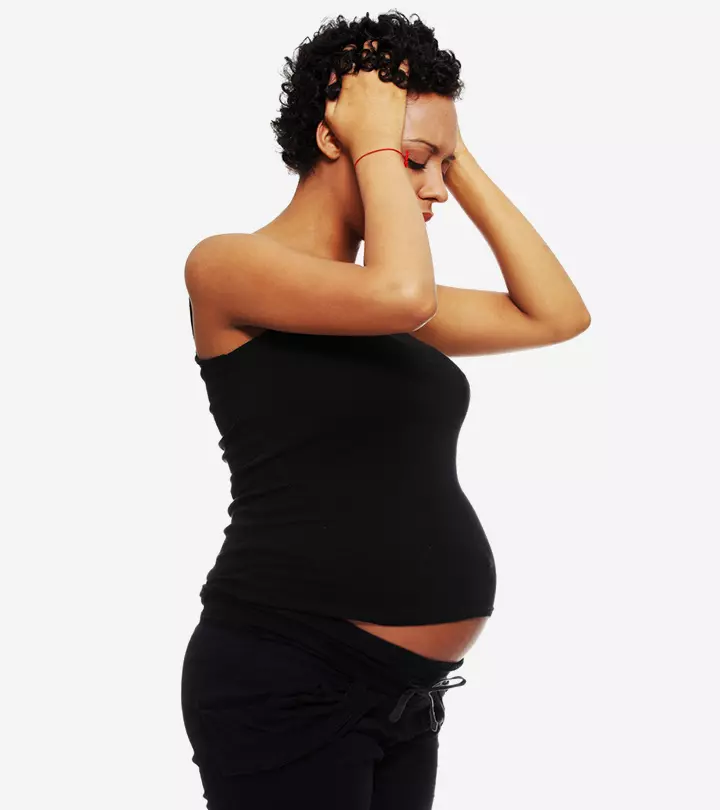
Image: Shutterstock
Most pregnant women experience a skin or liver condition called cholestasis that makes their belly, thighs, feet, and hands feel itchy. The condition also causes an itchy scalp during pregnancy. But fret not – there are treatment options available to give you some relief. Continue reading to know the causes and triggers of cholestasis, why it affects the scalp, and what you can do to soothe an itchy scalp.
In This Article
What Causes Itchy Scalp During Pregnancy?
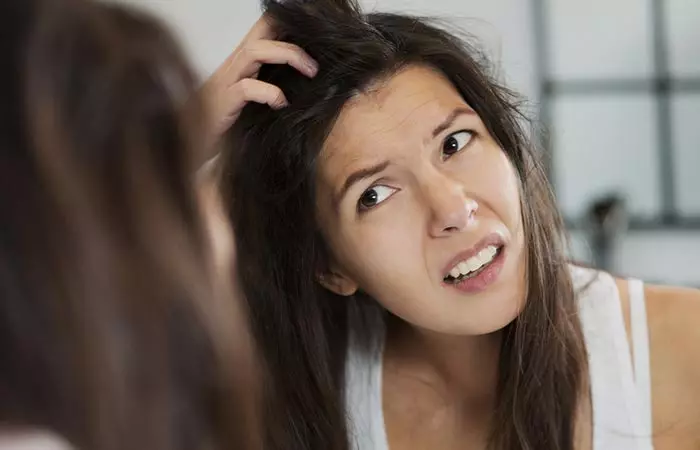
- Hormones: Hormonal ups and downs during pregnancy commonly cause nausea, vomiting, and mood swings. An itchy scalp could also be another symptom of these fluctuations. The quality of sebum gets impacted by the hormonal changes in the skin.
- Dehydration: Not consuming food or not drinking enough water causes dehydration and an itchy scalp.
- Dandruff: Dandruff caused due to dry weather or inflammation (seborrheic dermatitis) can also be a reason why your scalp is itchy. Seborrheic dermatitis is a type of chronic dandruff that can spread to your head, back of the neck, legs, arms, and pubic area.
- Stress: Pregnancy can trigger stress in many women. The hormonal response to stress causes inflammation in the body which, in turn, can have an impact on the scalp.
- Not Washing Your Hair: A common reason for having an itchy scalp is not washing your hair enough. Dirt, sebum, pollution, sweat, etc., get accumulated on your scalp, which can cause scalp itching.
Vicki, a vlogger, shared about experiencing a sore scalp with itching, burning, and sensitivity. She said, “It happened to me during pregnancy every time, and I didn’t know what it was, so afterwards I went and researched (i).” She explored the potential causes of a sore scalp, ranging from dryness to excess sebum production, and offered practical tips.
These could be a few reasons why you have an itchy scalp during pregnancy. So, how do you fix it? Let’s find out in the following section.
How To Treat Itchy Scalp During Pregnancy
Here are a few tips for hair care during pregnancy to keep your locks healthy and itch-free.
- Drink Adequate Water: To prevent dehydration and flush out the toxins from your body, you must drink adequate amounts of water every day. According to a paper published in the Journal of Perinatal Education, pregnant women must drink 8-10 glasses of water per day (1). Water also helps reduce stress and inflammation in the body, thereby reducing anxiety and depression (2).

- Exercise Every Day: Stretching, yoga, and meditation are essential for your physical and mental well-being (3). Exercising every day is vital to reduce stress, improve blood circulation, and keep your hair and skin healthy, especially during pregnancy. Talk to a physical therapist who specializes in prenatal yoga and meditation. Practice at least 20 minutes of yoga stretches and 10 minutes of meditation every day to reduce the scalp itching caused by hormonal ups and downs and stress.
- Use Anti-Dandruff Shampoo: If you have dandruff or seborrheic dermatitis, you must use an anti-dandruff shampoo to reduce scalp itching. Use a shampoo with selenium sulfidei A chemical compound that acts as an antifungal agent and treats itching, flaking, and other scalp conditions. , pyrithione zinci A compound of zinc with antibacterial and antifungal properties that treat skin and scalp infections, such as dandruff and eczema. (antifungal agent), and ketoconazolei A chemical compound that treats and prevents fungal infections and often causes severe side effects. to treat dandruff or seborrheic dermatitis effectively. Here are a few more shampoos you can use.
Note: Avoid shampoos with coal tar, parabensi Toxic chemical compounds used as preservatives in cosmetic products to increase their shelf life. , and sulfatesi Deep cleansing agents that help remove dirt, excess oil, and product buildup from your tresses and scalp. .
- Use Coconut Oil And Lime Juice: The combination of coconut oil and lime juice is a good home remedy for a dry scalp and dandruff. Massage coconut oil into your scalp and hair. Then use a cotton ball to dab lime juice all over your scalp. Wait for 10 minutes before washing it off. You must use coconut oil to avoid irritating the scalp with lime juice. If your scalp starts to burn, wash it off immediately. But keep in mind, sometimes extreme dry skin can be undiagnosed eczema and psoriasis. You might need to avoid lime juice, it can trigger the skin condition further. In this case you need to see a doctor.
 Quick Tip
Quick Tip- Use Essential Oils: Using essential oils has two benefits – it reduces dry scalp and helps you de-stress. You can choose any of these essential oils and dilute them with a carrier oil before applying them to your head. Massage your scalp gently to increase blood flow in the scalp. Take deep breaths and relax your shoulders and neck. Wait for 20 minutes before washing your hair.
- Get A Spa Treatment: If pregnancy has made your hair and scalp dry and lackluster, getting a spa treatment can help you revive it. The steam in saunas helps open up the hair cuticles, allowing moisture to penetrate the hair strands. Applying a moisturizer to your hair then helps keep the hair strands hydrated and nourished. Get a spa treatment once or twice a month to reduce dryness on the scalp and rejuvenate your hair.
- Sleep Well: Stress, anxiety, and depression are common during pregnancy and after childbirth. While exercising can help reduce stress and release serotonin (a feel-good hormone), your body and mind also need rest. Nothing is better than getting a solid 7-8 hours of sleep every night. This will help reduce stress and inflammation and reboot your immune system.
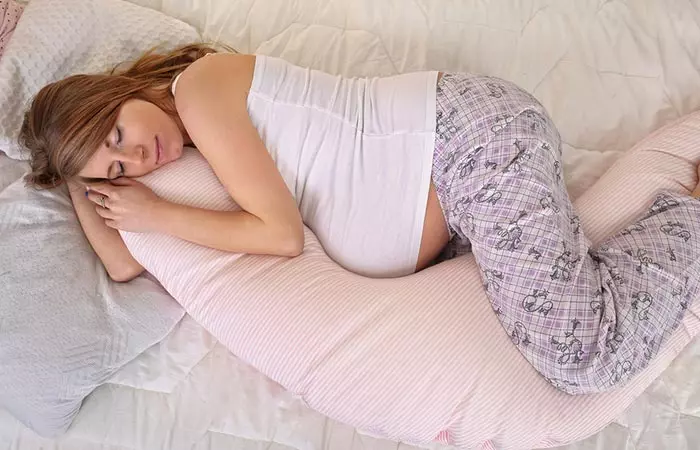
- Take Your Supplements: Vitamin and mineral deficiencies during and after pregnancy is a common issue. Taking the right supplements after talking to your doctor can also help manage an itchy scalp and hair loss.
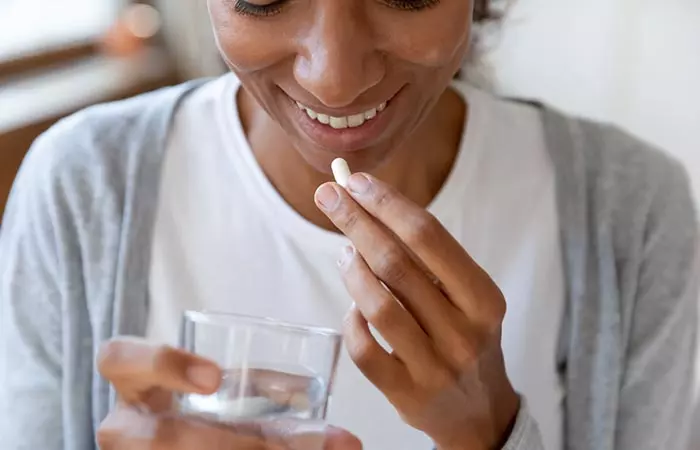
These are the ways you can reduce scalp itching during pregnancy.
Products To Use To Reduce Scalp Itching
1. Shampoo
Use a paraben-free, sulfate-free, and coal tar-free shampoo to keep your scalp, hair, and the baby(or babies) safe.
2. Conditioner
Using a good pregnancy-safe conditioner will keep your scalp and hair hydrated, soft, and nourished.
3. Hair Oil
Hair oils are loaded with fatty acids and nourishing properties that help lock moisture in your hair and reduce dryness on the scalp.
4. Essential Oils
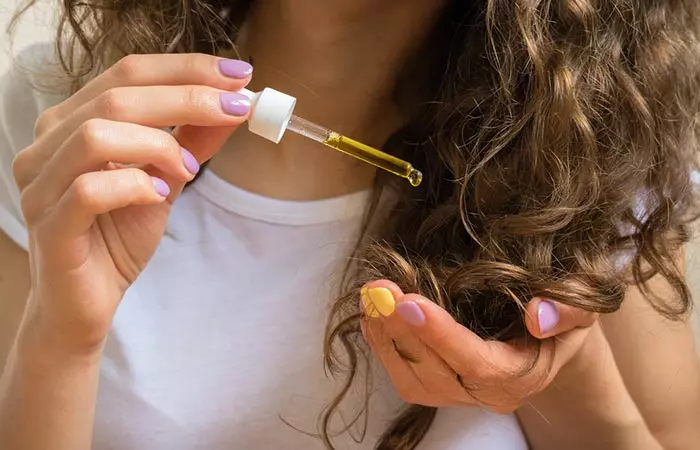
Essential oils have stress-relieving and hair-nourishing properties. Aromatic lavender or lemon essential oil mixed with a carrier oil (coconut or almond oil) can be applied to your hair to relax and moisturize your scalp and hair.
5. Hair Masks
Applying a hair mask once a week is a great way to treat your dry and itchy scalp. And the best part is, you don’t need to rummage through your kitchen to find ingredients to make a good hair mask.
 Quick Tip
Quick TipFinal Thoughts
Pregnancy is beautiful, but it comes with its own set of problems. Itchy scalp is one of them. Thankfully, you can treat your itchy scalp if you know what’s causing it. If it is your hormones, talk to your doctor to find a solution to help balance them. Drink water, exercise, eat healthy, stay stress-free, sleep well, take supplements, and take care of your hair during pregnancy by implementing the solutions mentioned above. Your scalp itching will reduce in a few weeks’ time.
Infographic: Itchy Scalp During Pregnancy: Causes And Treatments
An itchy scalp during pregnancy is one of the many discomforts a woman undergoes. The safest way to go about it is to know how to manage it. Check out the infographic below to know about the causes and treatments of cholestasis. Illustration: StyleCraze Design Team
An itchy scalp during pregnancy is a common issue. It may cause discomfort, but thankfully, you can get rid of the itching once you know the causes. Pregnancy may cause various changes in your body, like hormonal changes, which may cause an itchy scalp. Sometimes, external issues like buildup and dandruff may also cause itching. Consult a doctor to identify the exact reason and follow their advice to reduce itching and maintain a healthy scalp during pregnancy. Also, follow the tips discussed in the article to take care of your hair.
Frequently Asked Questions
At what month does itching start in pregnancy?
Itching in pregnancy starts somewhere around the third semester. However, some people can get it earlier as well.
Can early pregnancy cause dry hair?
Some women may get dry hair during the early weeks of pregnancy, while some may experience more oil secretion. It varies from person to person and with different pregnancies as well.
Is it safe to get scalp treatment while pregnant?
It is generally safe to get scalp treatment while pregnant, but it’s important to exercise caution and consult with a healthcare professional before undergoing any treatments.
Can using hair products cause an itchy scalp during pregnancy?
Yes, using hair products can cause an itchy scalp during pregnancy. The scalp may become more sensitive during pregnancy due to hormonal changes, and some hair products, including colors, gels, and sprays, may include chemicals that irritate the scalp and cause flaking or itching.
Key Takeaways
- A skin condition called cholestasis causes itchy hands, feet, and scalp during pregnancy.
- It may be caused by hormonal changes, dehydration, or stress.
- Keeping yourself hydrated, engaging in physical exercise, and using essential oils are some of the ways to reduce dryness and nourish your scalp.
- You can also use paraben and sulfate-free shampoo, hair oil, and hair masks to reduce scalp itching.
Illustration: Why Do I Have Itchy Scalp During Pregnancy? How To Treat It?
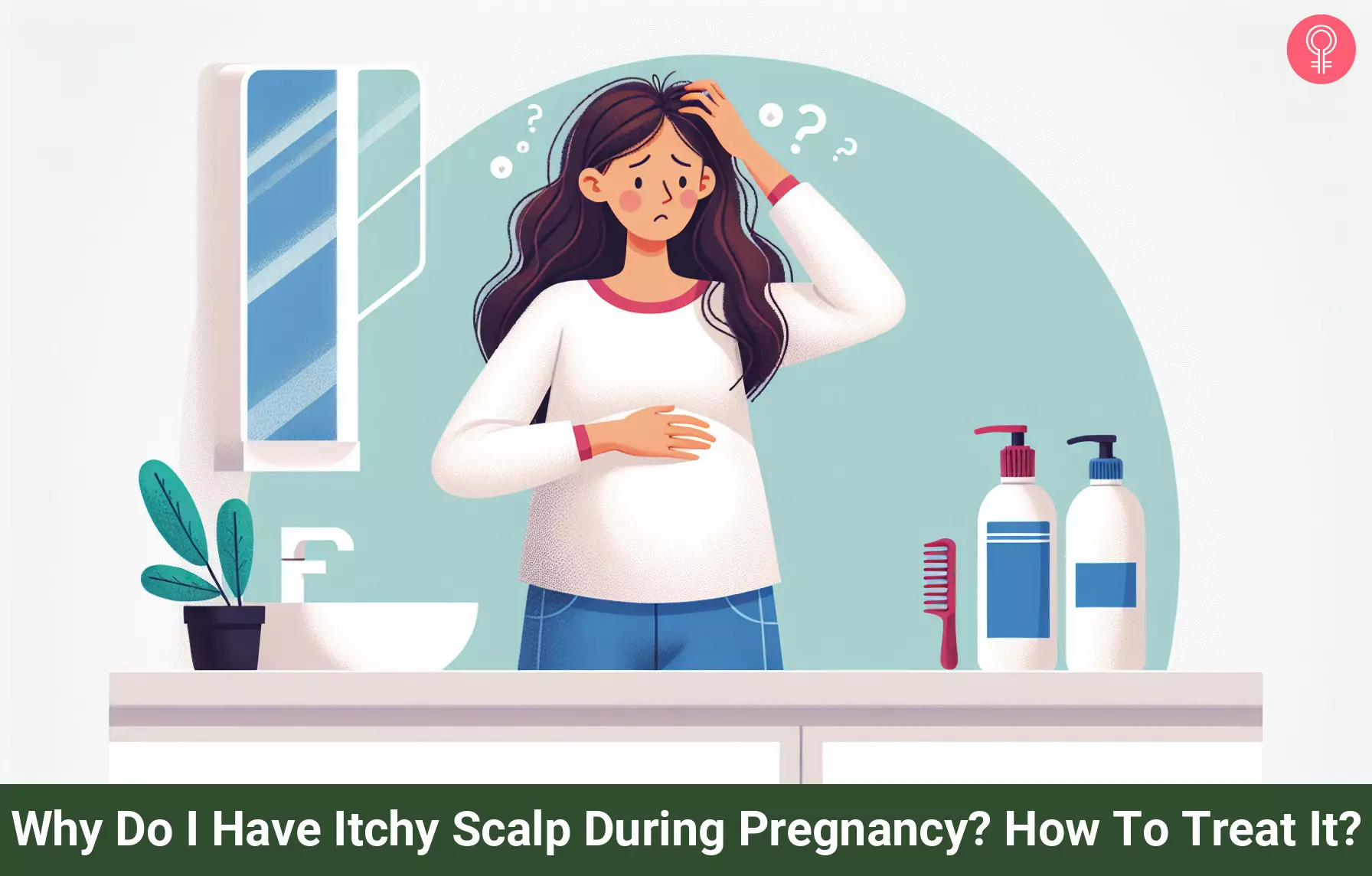
Image: Dall·E/StyleCraze Design Team
Experiencing an itchy scalp postpartum? Gain insights into how hormonal changes after childbirth may be responsible and explore practical solutions to alleviate discomfort in this informative video below. Check it out now!
Personal Experience: Source
StyleCraze's articles are interwoven with authentic personal narratives that provide depth and resonance to our content. Below are the sources of the personal accounts referenced in this article.
i. Pregnancy Sore Scalp | Painful scalp pregnancy | Irritated scalp pregnancy | Symptoms Explainedhttps://www.youtube.com/watch?v=ax5Qb2w-eoI
References
Articles on StyleCraze are backed by verified information from peer-reviewed and academic research papers, reputed organizations, research institutions, and medical associations to ensure accuracy and relevance. Read our editorial policy to learn more.
- Nutrition Column An Update on Water Needs during Pregnancy and Beyond ,
https://www.ncbi.nlm.nih.gov/pmc/articles/PMC1595116/ - Drinking plain water is associated with decreased risk of depression and anxiety in adults: Results from a large cross-sectional study,
https://www.ncbi.nlm.nih.gov/pmc/articles/PMC6147771/ - Benefits of exercise during pregnancy,
https://pubmed.ncbi.nlm.nih.gov/23174548/
Read full bio of Dr. Divya Sharma
Read full bio of Anjali Sayee
Read full bio of Swathi E





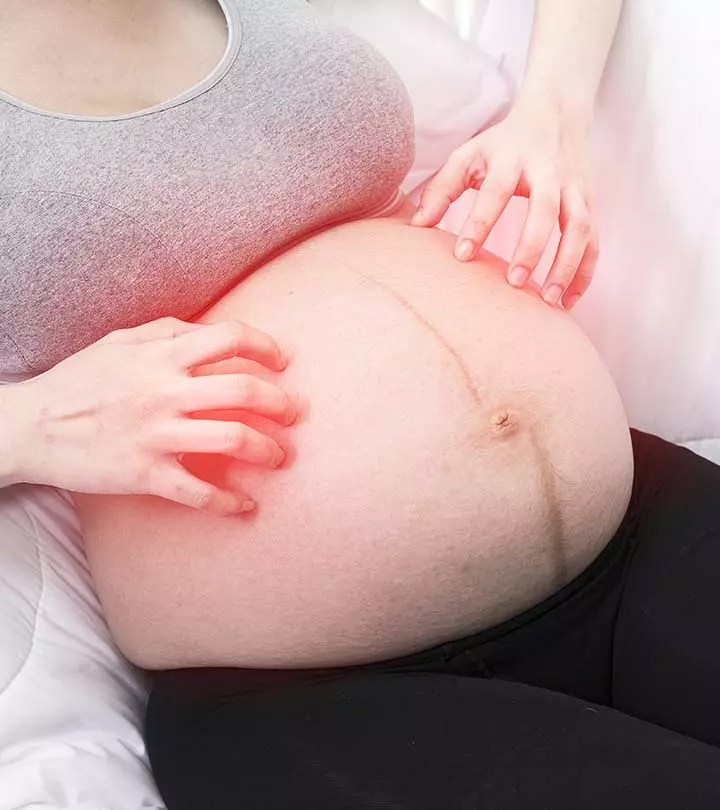

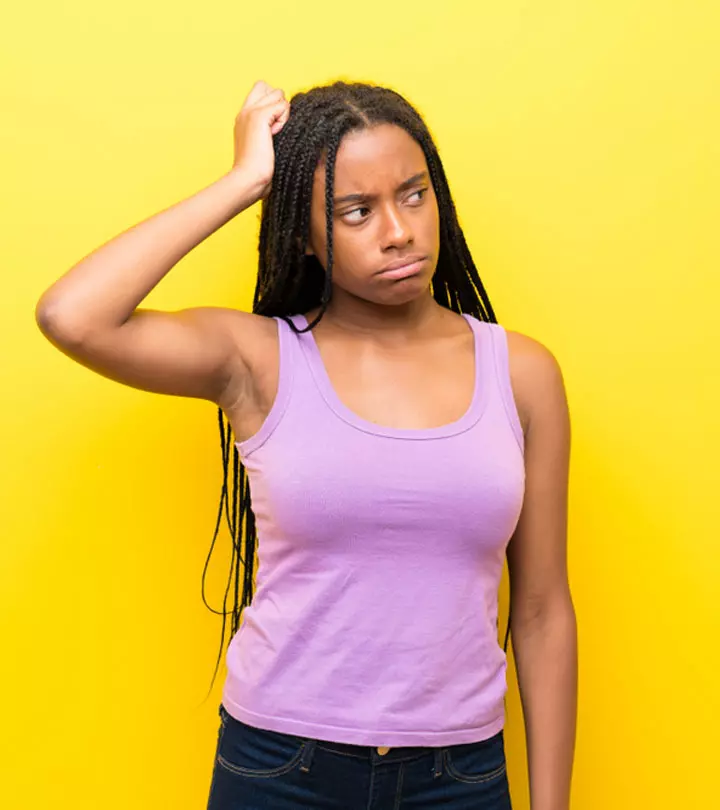
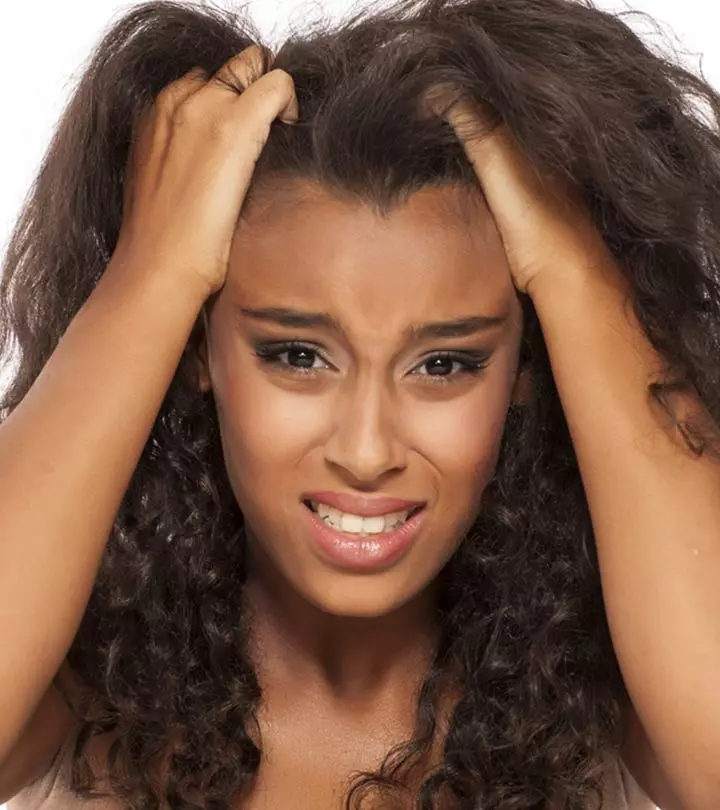

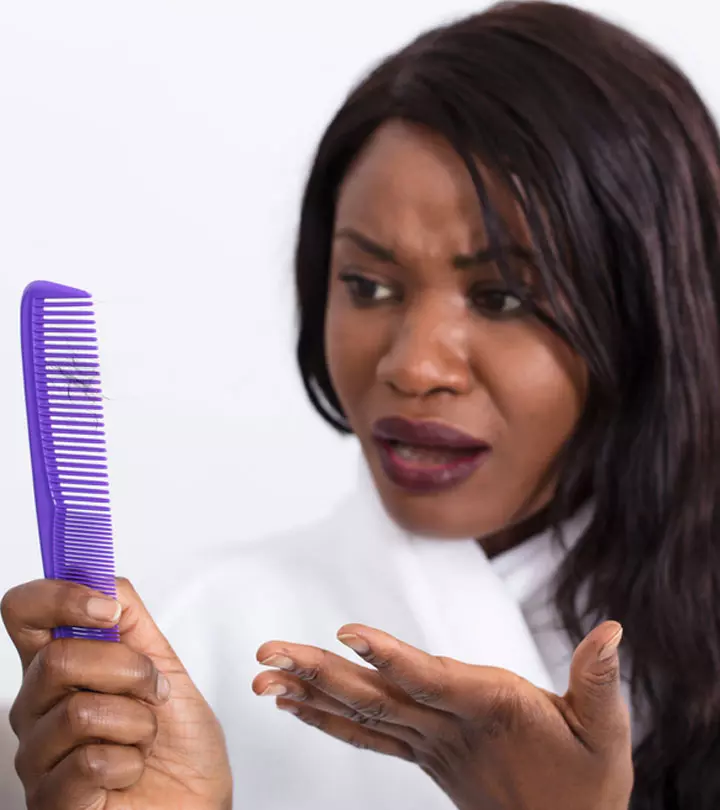
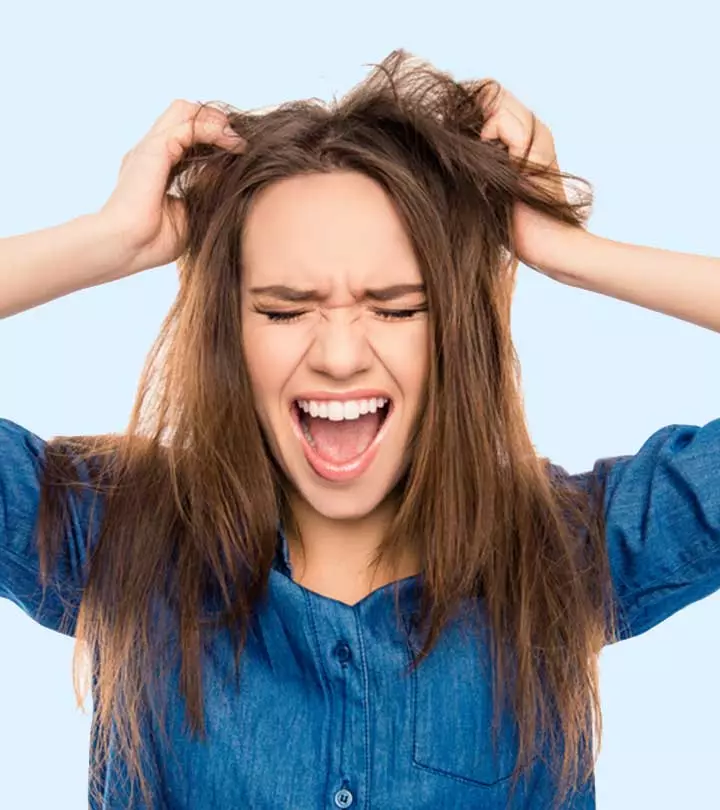
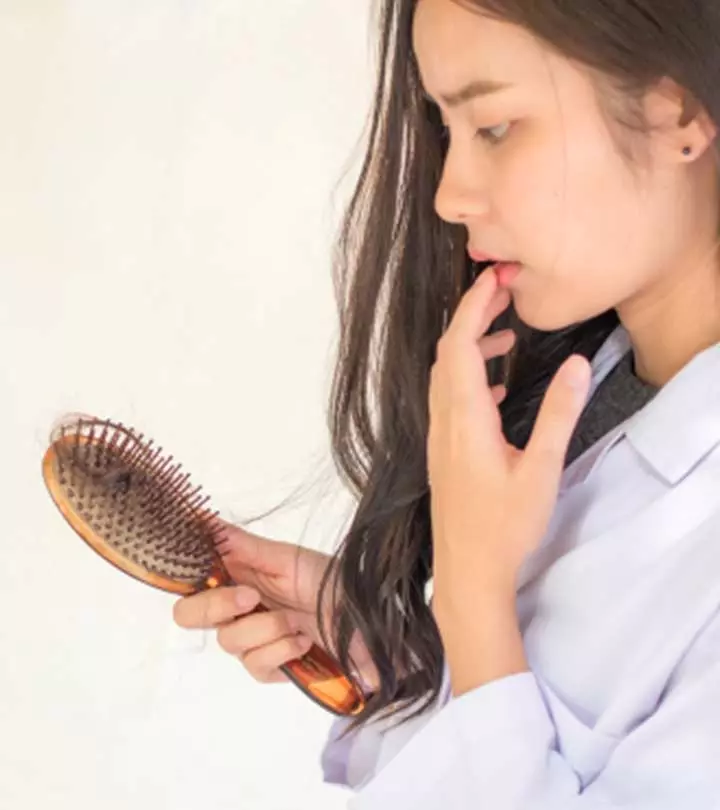
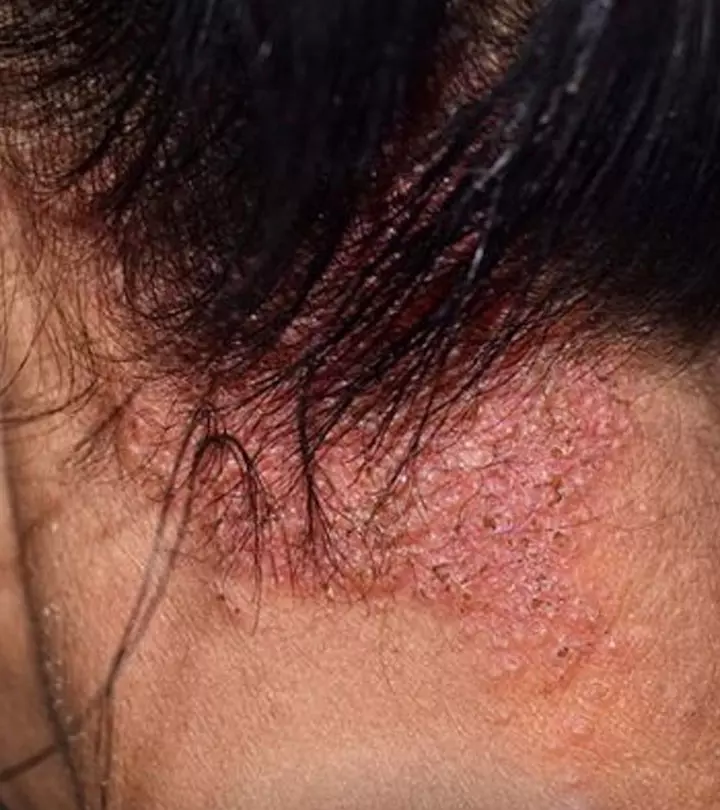

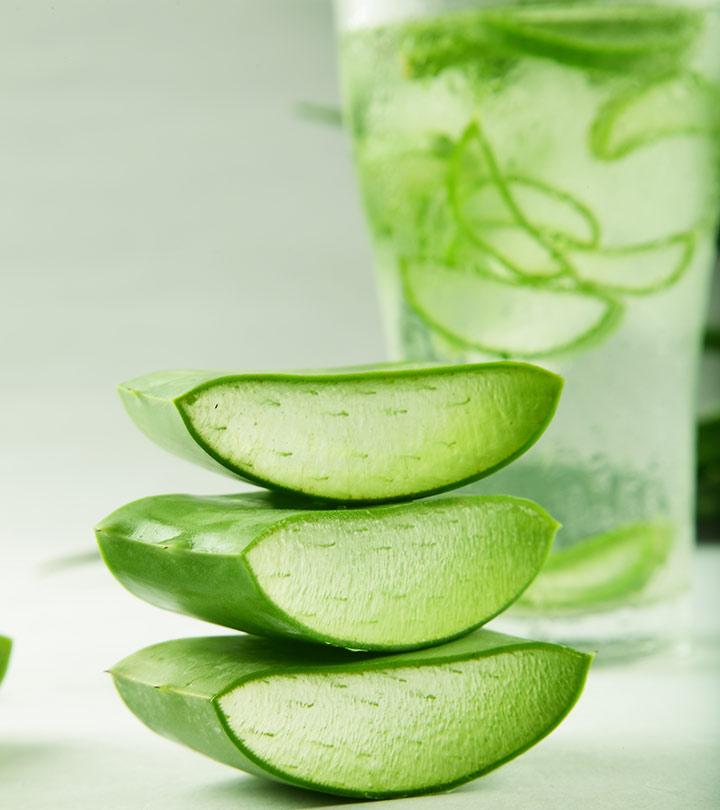



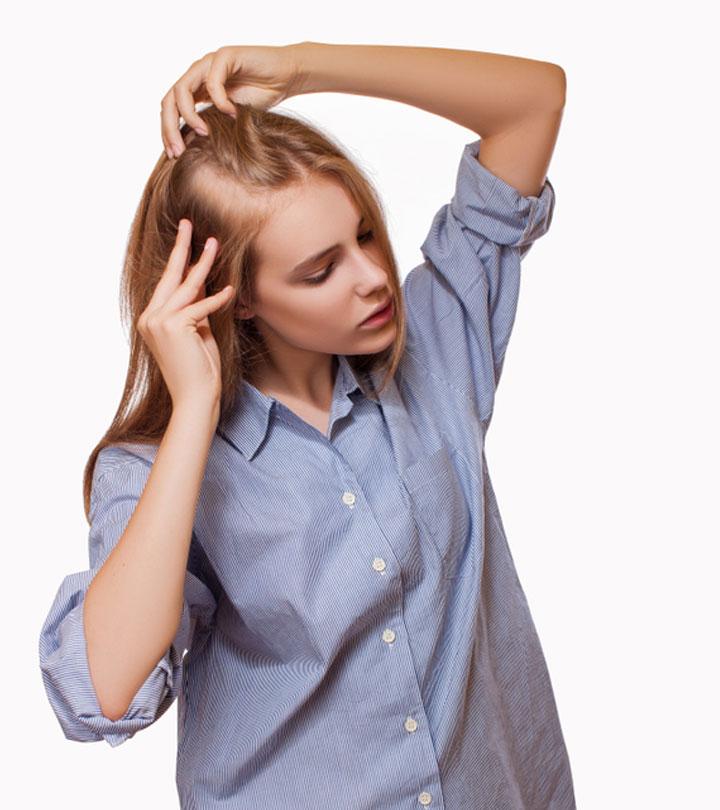
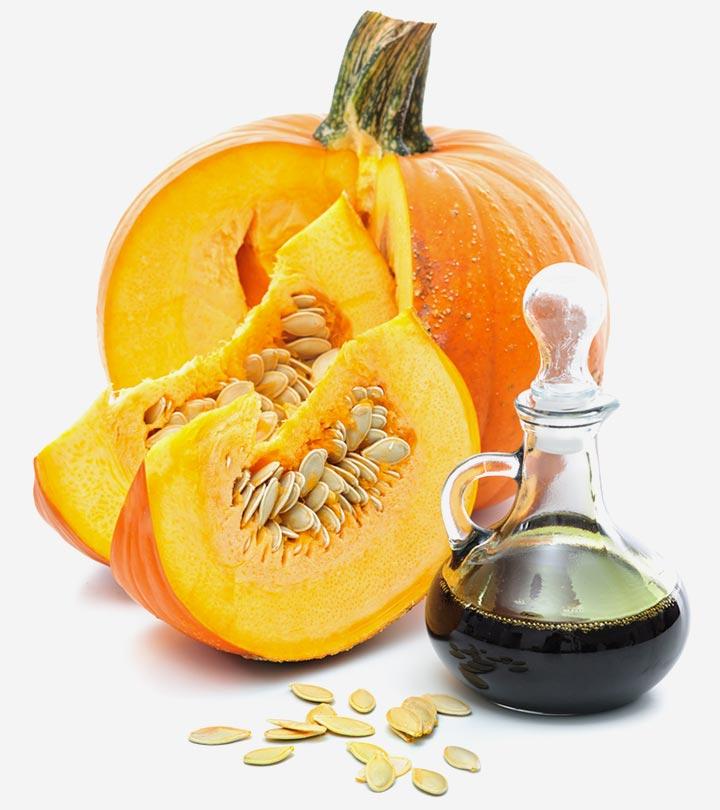
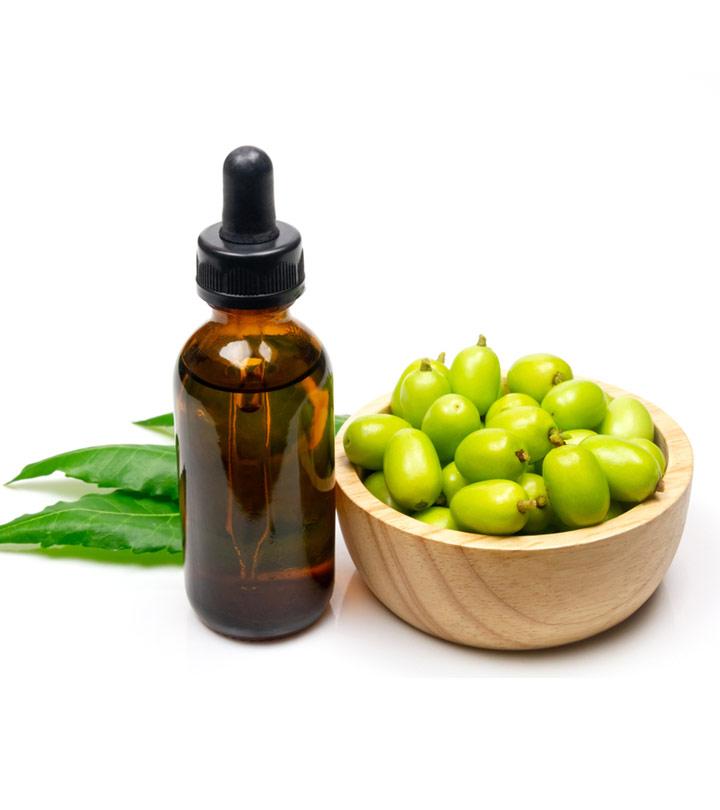
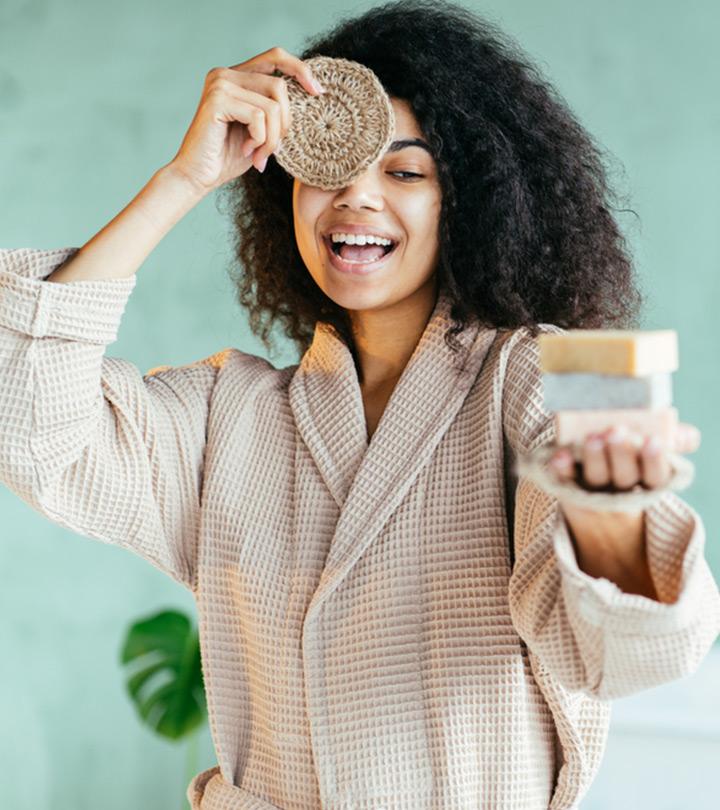
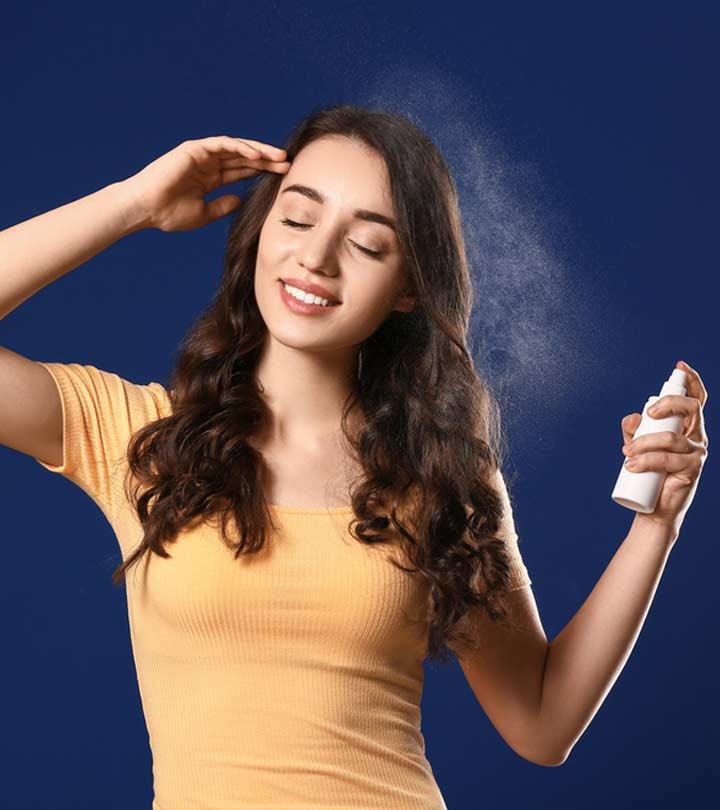
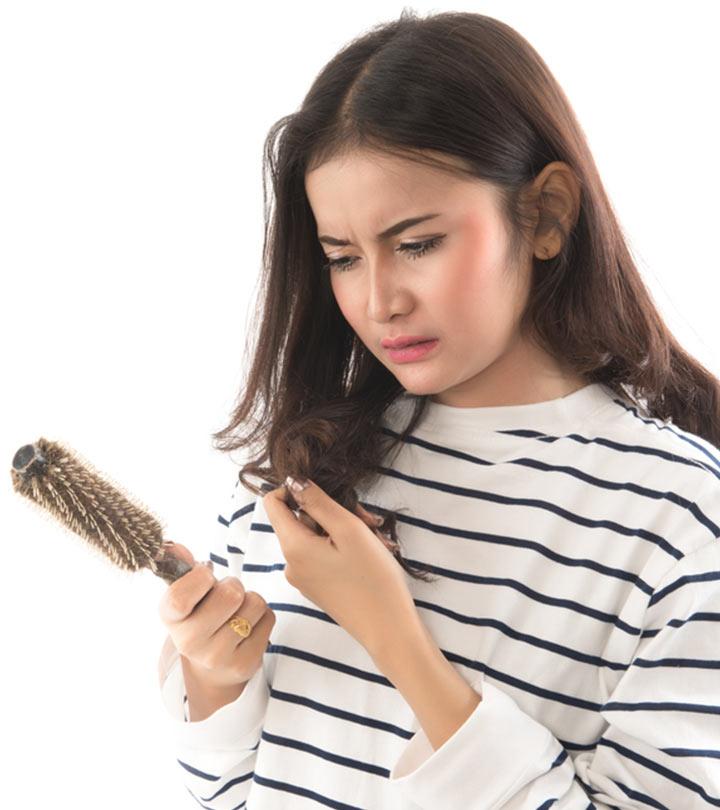
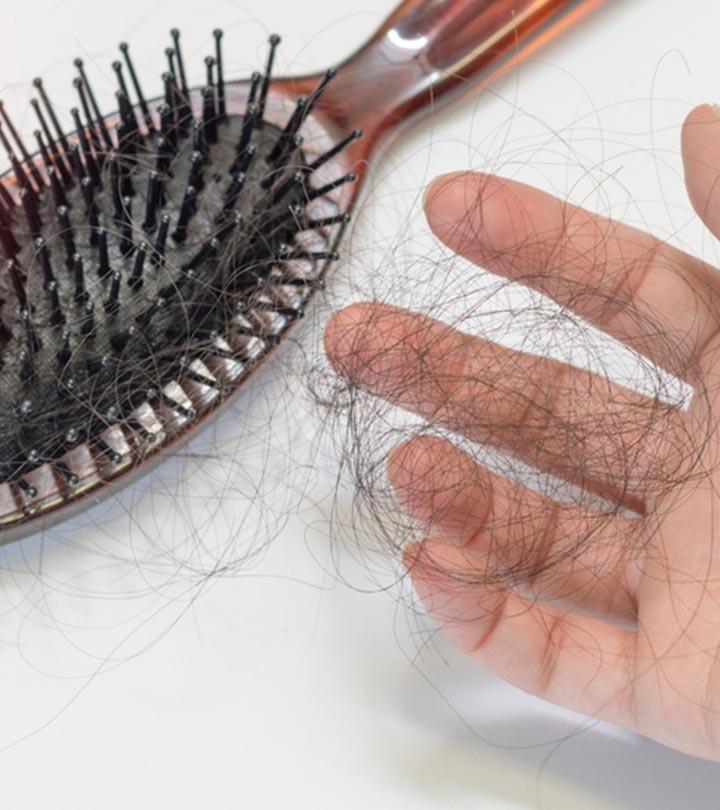
Community Experiences
Join the conversation and become a part of our empowering community! Share your stories, experiences, and insights to connect with other beauty, lifestyle, and health enthusiasts.